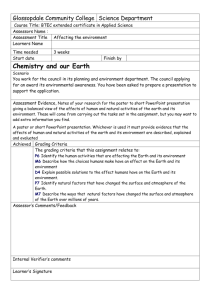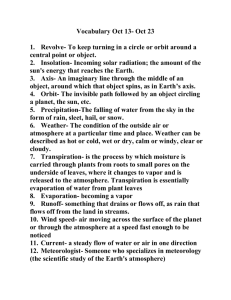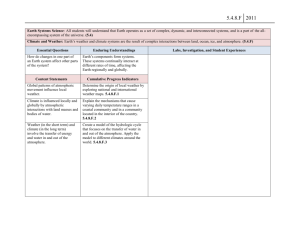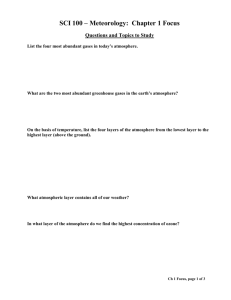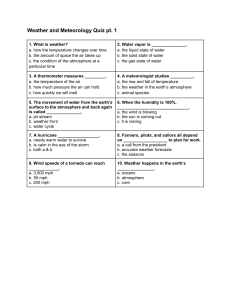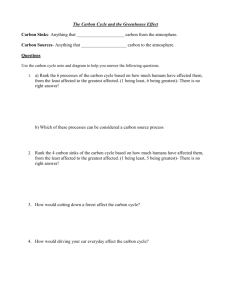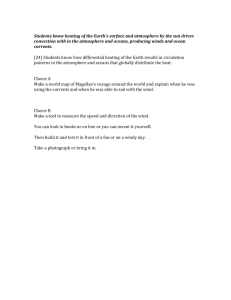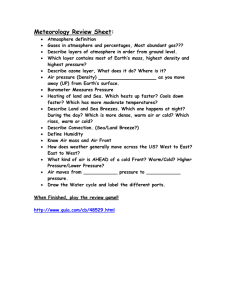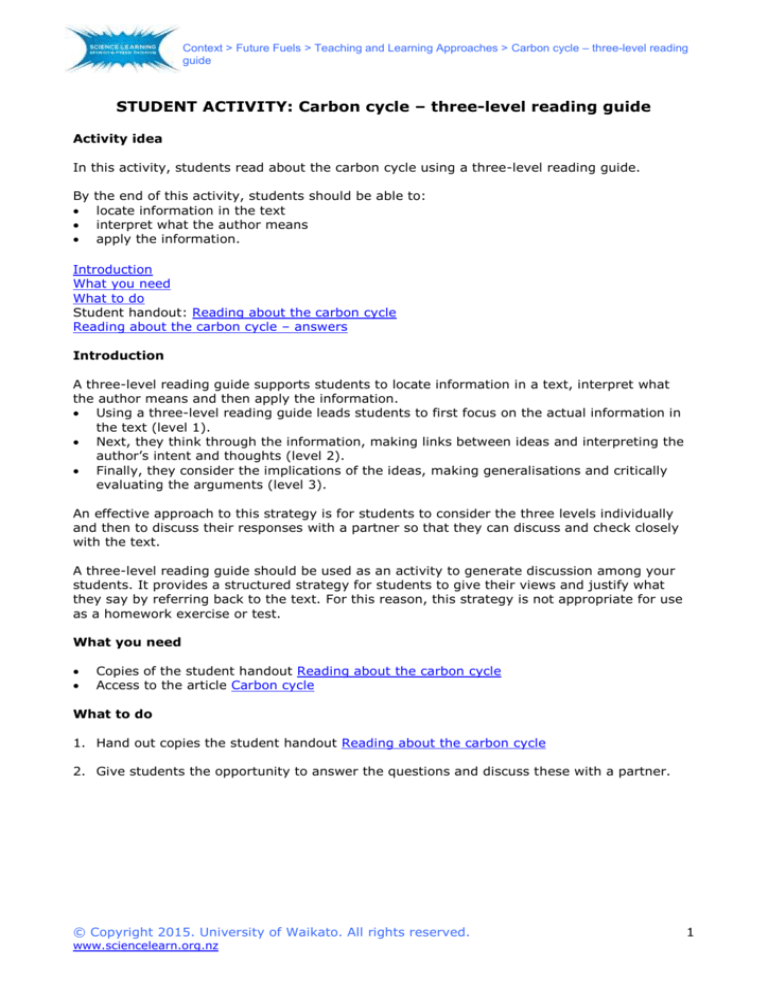
Context > Future Fuels > Teaching and Learning Approaches > Carbon cycle – three-level reading
guide
STUDENT ACTIVITY: Carbon cycle – three-level reading guide
Activity idea
In this activity, students read about the carbon cycle using a three-level reading guide.
By
the end of this activity, students should be able to:
locate information in the text
interpret what the author means
apply the information.
Introduction
What you need
What to do
Student handout: Reading about the carbon cycle
Reading about the carbon cycle – answers
Introduction
A three-level reading guide supports students to locate information in a text, interpret what
the author means and then apply the information.
Using a three-level reading guide leads students to first focus on the actual information in
the text (level 1).
Next, they think through the information, making links between ideas and interpreting the
author’s intent and thoughts (level 2).
Finally, they consider the implications of the ideas, making generalisations and critically
evaluating the arguments (level 3).
An effective approach to this strategy is for students to consider the three levels individually
and then to discuss their responses with a partner so that they can discuss and check closely
with the text.
A three-level reading guide should be used as an activity to generate discussion among your
students. It provides a structured strategy for students to give their views and justify what
they say by referring back to the text. For this reason, this strategy is not appropriate for use
as a homework exercise or test.
What you need
Copies of the student handout Reading about the carbon cycle
Access to the article Carbon cycle
What to do
1. Hand out copies the student handout Reading about the carbon cycle
2. Give students the opportunity to answer the questions and discuss these with a partner.
© Copyright 2015. University of Waikato. All rights reserved.
www.sciencelearn.org.nz
1
Context > Future Fuels > Teaching and Learning Approaches > Carbon cycle – three-level reading
guide
Student handout: Reading about the carbon cycle
Read the the Science Ideas and Concepts article Carbon cycle and answer the following
questions.
Reading on the lines
When reading ‘on’ the lines, you use/select factual statements from the text.
1. List an organic form of carbon.
2. List two inorganic forms of carbon.
3. Why is CO2 called a greenhouse gas? Choose the best reason:
It is an important gas in our atmosphere.
It traps the heat from escaping from Earth’s atmosphere.
It warms up the Earth’s atmosphere.
There is more carbon dioxide in the atmosphere.
Reading between the lines
When reading ‘between’ the lines, you use ideas that are suggested by the text.
4. How is inorganic carbon added to the atmosphere?
Reading beyond the lines
When reading ‘beyond’ the lines, you link ideas that are either suggested in the text and/or
from your own understanding of the topic.
5. Why is knowing about the carbon cycle important for our future?
© Copyright 2015. University of Waikato. All rights reserved.
www.sciencelearn.org.nz
2
Context > Future Fuels > Teaching and Learning Approaches > Carbon cycle – three-level reading
guide
Reading about the carbon cycle – answers
1. List an organic form of carbon.
Sugar, starch, all living things.
2. List two inorganic forms of carbon.
Rocks, animal shells, fossil fuels (oil, coal and natural gas) or CO2 in the atmosphere and
oceans.
3. Why is CO2 called a greenhouse gas? Choose the best reason:
It is an important gas in our atmosphere.
It traps the heat from escaping from Earth’s atmosphere.
It warms up the Earth’s atmosphere.
There is more carbon dioxide in the atmosphere.
4. How is inorganic carbon added to the atmosphere?
Inorganic carbon is added to the atmosphere by the breathing out of respiration waste
products from plants and animals and from the decomposition of dead plants and animals
by fungi and bacteria. It is also added by the burning of fossil fuels (fossilised plant and
animal remains converted over millions of years into coal, oil and gas).
5. Why is knowing about the carbon cycle important for our future?
It is important to know about and take actions to address the effect of CO2 as a greenhouse
gas; the effects of changes can be measured by monitoring carbon emissions to check that
increases in atmosphere levels are slowing.
© Copyright 2015. University of Waikato. All rights reserved.
www.sciencelearn.org.nz
3

